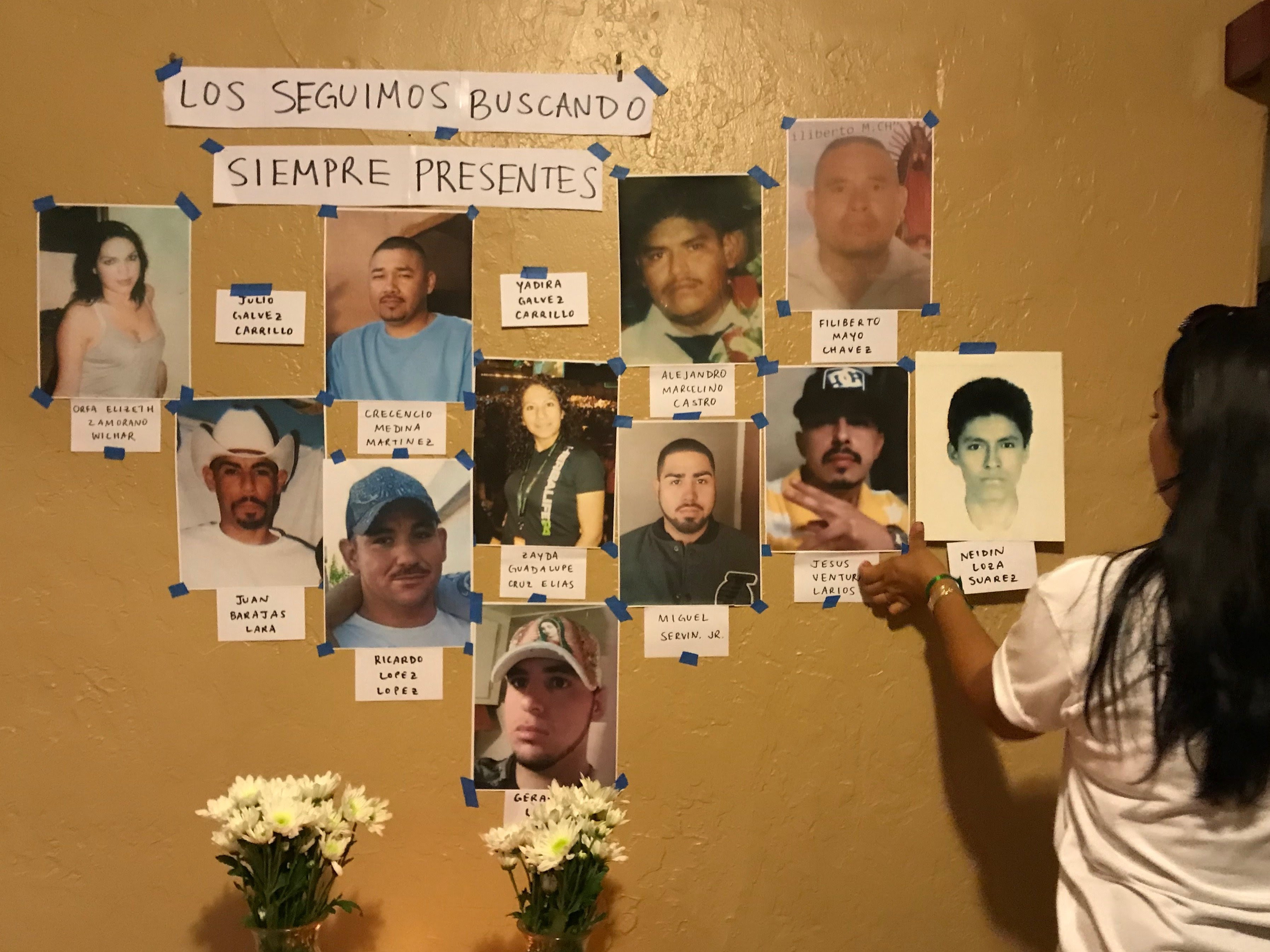Coalition member Colibrí Center for Human Rights focuses on ending disappearances and upholding human dignity along the US-Mexico border. Since its founding in 2013, Colibrí has collected over 3,000 missing persons reports from families across the US and the Americas. In addition, the Center assists families who are searching for their disappeared loved ones through both advocacy and forensic investigations.
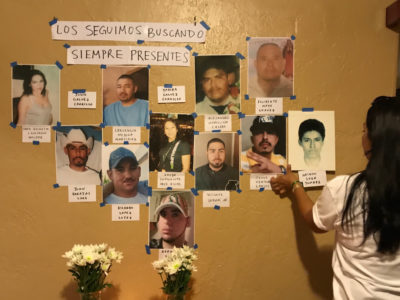
To better support these families, the Colibrí Center team created the Colibrí Family Network Program, which provides platforms for families to share their experiences searching for the disappeared and strategies for handling onerous border policies. As one of the 2019 Project Support Fund grant recipients, Colibrí will launch Historias y Recuerdos, an oral history storytelling project that will draw from the Colibrí Family Network Program. Aimed at combating negative stereotypes about migrants and their families, the project’s goal is to provide comfort to family members and to affect political change on the border. In the conversation below, Stephanie Zamora, the Advocacy Director at the Colibrí Center for Human Rights, shares more about Historias y Recuerdos.
Can you tell us about Historias y Recuerdos and why storytelling is necessary?
Each and every person who has disappeared while crossing the border represents a unique, irreplaceable and important life that mattered to their family. Telling their stories and centering family voices not only brings awareness to the issue, but it also provides healing for families and a chance to continue to fight for truth, justice and answers. One goal of this project is to give families a platform to paint a holistic image of their disappeared loved one, humanizing people who have historically been criminalized and erased for their act of migrating. Shifting the narrative from just “migrant” to “father, chef, pillar of the household, musician, loving older brother, dedicated sister” is so crucial to changing negatively generalized concepts of immigration. No human being should lose their life for crossing a line on a map. Every person who has disappeared or died on the border should be honored and remembered, and there should be justice for their death.
Further, the distribution of these stories is urgent. The political climate is increasingly hostile and dehumanizing toward migrants and families are eager to combat those narratives. Historias y Recuerdos will highlight the humanity of those disappeared on the US-Mexico border. The stories will be used to inspire hope and affect change through oral history interviews paired with intimate photographs that honor the memory of the disappeared loved one. Families, students, educators and policymakers will share in the experience through exhibits, presentations and convenings.
How is Colibrí uniquely situated to use storytelling as a medium for advocacy and awareness-raising?
Although the Colibrí Center has been documenting migrant deaths for over 13 years, the issue is still largely invisible. Death and disappearance at the US-Mexico border is one of the most pressing humanitarian issues of our time. Over the past 25 years, the border has been militarized and weaponized against migrating people, resulting in the unjust and preventable loss of human life. Colibrí has received calls from families across 43 states in the United States and 14 countries outside the United States since its founding which illuminates the international scale of these stories and the need to amplify these stories of migration.
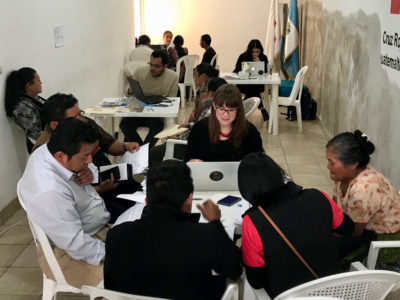
Colibrí has helped facilitate the identification of 123 people. Colibrí’s success rate with its DNA Program is four times that of the federal government’s and we attribute that to Colibrí’s investment in building trusting relationships with families.
Families are ready and eager to tell the world of their experiences with the goal to raise awareness, uplift the humanity of their loved one, and create lasting, effective change. The deadly and costly reality of the immigration system is being exposed daily – families deserve to have their voices heard.
What role do these testimonies have in changing narratives, seeking justice and accountability, and healing those impacted by violence along the US-Mexico border?
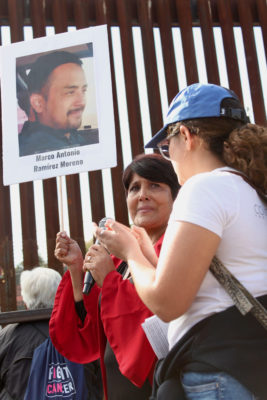
Those closest to the problem are closest to the solution. Families of those who have been most harmed by US border and immigration policies have the knowledge, insight and lived experience to affect change. These testimonies will not only challenge dominant and negative narratives about migrants and their families but will also be useful in advocating for change.
Each time a family chooses to share these types of intimate memories with us, we can sense the love they feel for their lost person and we recognize the power these stories hold. We have come to believe that this power is twofold: first, for the families themselves, but also for the public.
Too often, the conversation about immigration becomes one about numbers and abstractions, not about individual human beings. Bearing witness to the families’ stories by listening to what they have to share is the most beautiful and powerful way to begin to recognize the human cost of the border.
How will these testimonies be recorded and how will they be shared?
Thanks to the Coalition’s Project Support Fund, Historias y Recuerdos will record and share oral histories with photographs paired with each interview. Interested families or family members will sit down one-on-one with our staff and record their testimonies about their individual lost loved one. We will work with each family or family member to determine how they want their story to be recorded — audio or video — and the stories will be shared while respecting the degree of privacy they feel most comfortable with. The conversation will center on the individual person being honored. Our hope is that the act of sharing memories with someone who is there to listen and honor them will be special, and potentially healing for families.
Once completed, these interviews are meant to be shared in a diverse way through exhibits, educational materials and our website. Colibrí is constantly dreaming up ways to share these testimonies as creatively as possible. Digital spaces especially create an opportunity to expand the physical space of the borderlands and invite the public to make their intimate spaces sites of remembrance.
What change does Historias y Recuerdos aim to create?
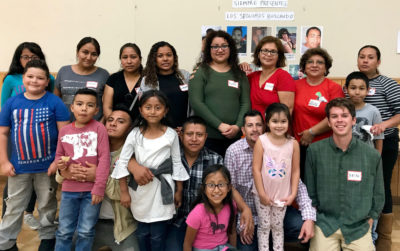
This project aims to share positive narratives of migrants and their families. It will also raise awareness and create historic memory for a deeply silenced population.
More specifically, one of the audiences of this project is policymakers. One of the most crucial changes Colibrí and the families are pushing for is access to the FBI’s federal DNA database of unidentified people known as CODIS. Because Colibrí can only help identify those who lost their lives crossing the border through Arizona currently, this limits justice and accountability for families whose loved ones have disappeared along the California and Texas borders. Being able to compare the DNA samples families have provided against this larger database could potentially yield hundreds of identifications. Further, Colibrí advocates for legislation like the Migrant Remains Bill which would allocate funds to county medical examiners to work to identify missing migrants. In addition, it calls for more rescue beacons to be placed along the desert to aid those in crisis, as well as accurate and accountable public reporting of migrant deaths.
Finally, Colibrí participated in a delegation to Washington, DC with Border Network for Human Rights to advocate for the Homeland Security Improvement Act which was sponsored by Congresswoman Veronica Escobar of El Paso, Texas. This bill calls for accountability and oversight of the largest law enforcement operations in the country: ICE and Border Patrol. Among many crucial changes, the bill also calls for Border Patrol to create a strategic plan to mitigate migrant deaths and make more accurate and detailed reports when remains are discovered. This bill has passed the House and is now waiting to be seen by the Senate. Through Historias y Recuerdos, the narratives on migration can change and increase public pressure to enact legislation that protects human rights along the border.
To learn more about the Colibrí Center for Human Rights, visit their website.

